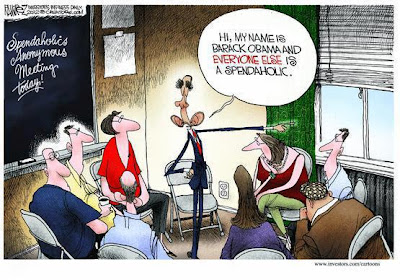Saturday, December 29, 2012
ISSA: Washington spenders flunk basic math
◼ Raising taxes won’t avoid ‘fiscal cliff’ - Rep. Darrell E. Issa/Washington Times
So much time and energy is being spent advancing the myth that raising taxes is the best way to avoid falling off the so-called “fiscal cliff.”
If you raised taxes on the top income bracket, you would generate around $1 trillion over 10 years. The past four years under President Obama have resulted in trillion-dollar deficits each year. At this rate, in 10 years we’re looking at $10 trillion in new debt. At best, the “tax-the-rich” proposal is just a 10 percent solution.
Let’s take this tax-more, spend-more approach to the extreme. If you return everyone to the Clinton-era tax rates, you’re still left with a 10-year, $2.3 trillion deficit, and that’s assuming everything stays as it is right now, and Washington breaks its trend of spending more every year. (Even if we go over the fiscal cliff and return to Clinton-era tax rates, we’re still left with at least a $2.3 trillion deficit over the next 10 years.) The bottom line is this: Under no proposed scenario does raising taxes eliminate the deficit and return us to a balanced budget. The problem is government spending.
This fixation with tax increases is doing a huge disservice to the American people because it ignores the real crisis: government spending. By now, you know all too well that government spends more than it takes in. The federal government is spending more per household than ever before. Since 1965, spending per household has grown by 152 percent....
I can guarantee you this: It won’t stop here, it won’t stop with just the “1 percent” or the “2 percent.” There will never be enough to satisfy this insatiable appetite to spend more.
That’s what’s really at stake right now.
The other side tries to boil this down into a seven-second sound bite about taxing the rich and people paying their fair share. In 2009, the top 10 percent of earners in the United States already paid more than 70 percent of federal income taxes.
This isn’t about fairness and unfairness. It’s about taxing and spending, and the federal government has spent enough.

